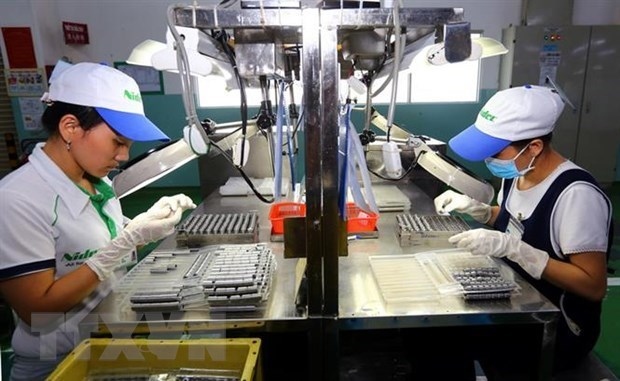HCM City targets higher exports by key earners in 2021
Ho Chi Minh City has set a goal of boosting the export of its key products this year and beyond via trade promotion activities and assistance to enterprises.
According to a recent survey of manufacturing-processing companies conducted by the municipal statistics office, 35.7% of respondents believe business and production will be better in the first quarter of 2021 than in the final quarter of 2020, while 29.9% predict that the number of export orders will increase and 44.5% believe numbers will remain stable.
Head of the statistics office Huynh Van Hung said COVID-19 has been largely brought under control around Vietnam, resulting in the production sector exhibiting signs of recovery. Local enterprises, however, continue to face difficulties as many major trading nations are yet to open their markets.
He noted that enterprises are in need of diverse and long-term support relating to information on importers of materials and fuel, new markets and partners, and domestic consumption stimulus measures.
According to Nguyen Phuong Dong, Director of the municipal Department of Industry and Trade, despite facing myriad challenges, last year the city still saw five goods post export turnover in excess of US$1 billion: computers-electronic products and components, with US$17.8 billion; garment-textile US$4.3 billion; footwear US$2.2 billion; machinery-equipment-spare parts US$2.2 billion; and other goods US$6.9 billion. Together their export value accounted for 83.5% of the city’s total.
Key export markets remained China, the US, and Japan. China imported US$10.5 billion worth of goods from HCM City last year, up 23.7% year-on-year. Exports to the US and Japan, meanwhile, stood at US$6.7 billion and US$2.8 billion, down 0.2% and 16%, respectively, year-on-year.
Phan Thi Thang, Vice Chairwoman of the municipal People’s Committee, directed local departments and sectors to identify and introduce measures to attract FDI and official development assistance (ODA).
She highlighted the importance of improving the business climate; encouraging the establishment of new enterprises in industrial production, electronics, and IT; and building mechanisms for effective inter-sector and inter-region cooperation.

